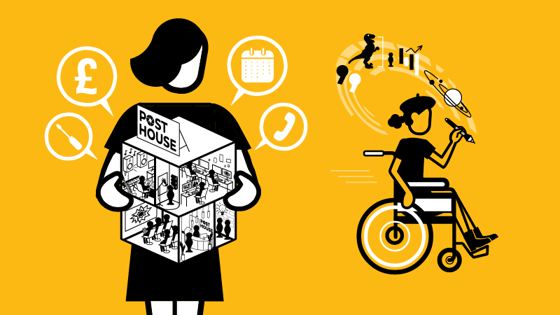Games
Tools engineer
Also known as: Tools programmer

What does a tools engineer do?
Tools engineers make the life of games designers, artists and programmers easier by giving them the best tools for the job. Some of the time the tools (software programs) used by games developers are bought off-the-shelf but it’s also necessary to have purpose-built software designed specifically for the creation of a particular game. Tools engineers are responsible for creating and maintaining those tools whether they be for the game engine itself or the 3D art suite.
They also work with programmers, artists and designers to figure out what tools to build, explain how they should be used and monitor their effectiveness.
What is a tools engineer good at?
- Communication: work with team members to identify their requirements, teach them how to use the new tools, create detailed documentation and submit reports explaining what they have done
- Programming or software engineering: write strong code that’s adaptable and easily understood by fellow coders
- Knowledge of games engines and platforms: understand the programming constraints of games consoles, PCs, handhelds and mobiles
- Innovation: imagine ways of solving the problems experienced by team members
- Time management: stick to a strict schedule in the game’s development
Who does a tools engineer work with?
A tools engineer works closely with programmers, designers and artists to create the tools to meet their needs.
How do you become a tools engineer?
This is not an entry level role. A position as a tools engineer in the games industry typically requires at least two years of programming experience. Go to our generalist programmer job profile for details of how to enter the industry in a more junior role. Or you might find a way in by starting as a QA tester – but only if you have programming skills too.
At school or college:
If you want to go to university:
Take A-levels or Highers in maths, physics or computer science. Or you might want to take a Level 3 BTEC Diploma/Extended Diploma in Computing. For a career in games, it’s good to include art, so put art and design or graphic design into the mix too, if you enjoy those subjects.
If you want to go straight into a job or apprenticeship:
The following Level 3 vocational qualifications would be relevant:
- BTEC Diploma in Computing for Creative Industries
- AQA Technical Level IT: Programming
- OCR Technical Diploma in IT (Digital Software Practitioner)
Build a portfolio:
Create work that you can show off to employers. Go to build your games portfolio to learn how.
Get a degree:
Most people in the games industry have got degrees. Get a degree in, physics, computer programming, game development or advanced mathematics. Or have a look at ScreenSkills’ list of recommended courses in games and select one in programming. We recognise courses with our ScreenSkills Select award where they offer training in the relevant software, dedicated time to building a portfolio and have strong links with the games industry.
Start modding:
Create levels of a game using software provided by the publishers.
Network:
Get to know people in the games industry by attending events, including games conferences and expos. Meet professionals and ask them questions about their work, while demonstrating interest and knowledge in the industry. Offer to provide them with your professional contact details and try to stay in touch with them. Go to Network well to learn how to do this.
Search for jobs:
Use the UK Games Map to find out if there are games companies near you. Then go to their websites directly and check out their open roles. Even if they are not advertising the right role, if you like a specific company it’s worth emailing them to let them know you are looking in case something suitable comes up in future.
You might also be interested in…
Being a graphics programmer, gameplay programmer, physics programmer, artificial intelligence (AI) programmer, virtual reality (VR) programmer, an engine programmer or a network programmer in the games industry. You might also be interested in being a software developer in visual effects (VFX). Alternatively, you could consider a technical director (TD) role in VFX or in the animation industry.







